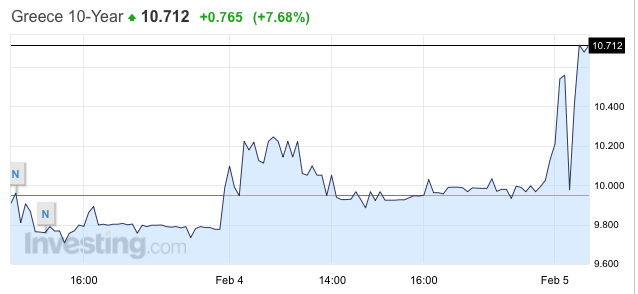The picture was completely different from that which was seen last week in Athens, when the Eurogroup President, Jeroen Dijsselbloem, met the New Greek Finance Minister. The body language was distinctly more positive, with Juncker trying to show kinship at the Brussels meeting.
A “first face- to-face without any concrete decisions,” said Natasha Bertaud, who spoke in the absence of a press conference. But no one in Brussels thinks that dismantling the troika has not been on the table. Victory offered the Greek public the notion that it is a dying institution.
“The statement to shut down the troika sounds good. Finally some people understand what is happening but I don’t think that Juncker can do it by himself,” a high ranking Greek political advisor said in private. “The base has to be a group of countries which decides jointly and equally,” the source added.
The ECB and national central banks hold around €27 billion in Greek debt, the IMF up to €25 billion. Therefore, the most important role is that of the EFSF, the Financial Stability Facility, as the lender of more than €140 billion. But the presence of a non-European actor would be decisive to reassure some countries that their money is safe.
“To Schauble, the IMF is a key member of the troika. Some are insisting on IMF participation, the IMF is important for enforcing discipline,” a senior EU official said in Brussels.
Tsipras also went to the Council and the European Parliament to explain Greece’s latest debt proposals, which are comprised of an exchange of EFSF and bilateral loans of €53 billion for new GDP indexed debt. The Syriza advisor- who is close to the Prime Minister- says the idea of reducing the burden debt remains.
“We still speak about a haircut. Since the beginning, it has been very clear that the final debt repayment should be linked to an economic development clause, with a longer maturity. But that would be the final amount, not the whole debt,” the Syriza advisor explained. The source was keen to link the question to a Europe-wide debate because “it’s a problem for all of the EU. We have to deal with it in tandem with the rest of the indebted countries”.






Be the first to comment on "All smiles and handshakes for Tsipras’ EC visit (before ECB tightened the rope)"